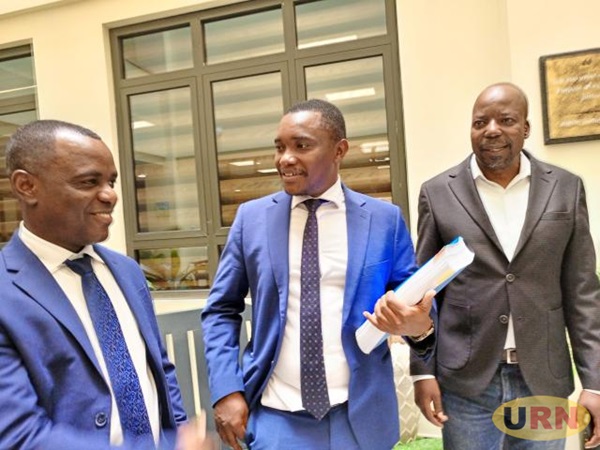
Kampala, Uganda | THE INDEPENDENT | Ugandan activists have appealed to the Supreme Court to overturn the Constitutional Court decision that upheld the Anti-Homosexuality Law. The Constitutional Court ruled in April 2024 that the law was primarily enacted to protect children and vulnerable individuals in society.
However, the 22 activists on Thursday approached the court with voluminous documents containing evidence, grounds of appeal, and a list of authorities that they want the Supreme Court to consider and set aside the decision by the lower court.
In 2023, the Parliament of Uganda passed the Anti-Homosexuality Act following public outcry, social and broadcast media discussions, and homosexuality victims’ ‘painful and grueling stories’ of children and families that were ‘dying in silence’ from the psychological trauma of forced recruitment of children into homosexual acts. The Act criminalized homosexuality, its recognition, promotion, financing, and normalization.
However dissatisfied with the enactment of the law by Parliament, the activists filed a petition in the Constitutional Court with partial success.
But the Constitutional Court nullified Sections 3(2)(c), 9, 11(2)(d), and 14 of the Anti-Homosexuality Act, 2023, for contravening the Constitution of Uganda, 1995. The decision arose from Constitutional Petition numbers 14, 15, 16 & 85 of 2023, filed by Fox Oywelowo Odoi, Prof. Sylvia Tamale, Advocate Rutaro Robert, Bishop James Lubega Banda and 18 others Vs Attorney General, and 3 Others.
The nullified sections had criminalized the letting of premises for use for homosexual purposes, the failure by anyone to report acts of homosexuality to the Police for appropriate action, and the engagement in acts of homosexuality by anyone resulting in the other person contracting a terminal illness.
The 22 activists, including gay activists, academics from Makerere University, Members of Parliament, and Civil Society Organizations, are challenging the decision issued by a panel of five Justices of the Constitutional Court comprised of Deputy Chief Justice Richard Buteera, Geoffrey Kiryabwire, Muzamiru Mutangula Kibeedi, Monica Kalyegira Mugenyi, and Christopher Gashirabake on April 3rd, 2024.
The activists in their appeal have raised 13 grounds in which they state that the Constitutional Court erred in several key aspects, including failing to ensure meaningful public participation during the law’s enactment, contrary to Uganda’s National Objectives and Directive Principles of State Policy and various constitutional articles.
Others are misinterpreting the law’s financial implications, specifically, the private member’s bill that introduced the Anti-Homosexuality Act of 2023, which they argue does impose a charge on public funds, contrary to Article 93 of the Constitution.
“The learned Justices of the Constitutional Court erred in law and fact when they found that the private members bill that introduced the Anti Homosexuality Act of 2023 did not impose a charge on the consolidated fund or any other public funds in contravention of Article 93..of the Constitution “, reads the appeal.
The appellants also fault the lower court for overlooking the Speaker of Parliament’s ‘irregular’ conduct during the enactment process, which they argue was inconsistent with the law.
They also accuse the Constitutional Court of incorrectly finding that the Anti-Homosexuality Law does not alter or undermine court decisions or judgments, contrary to Article 92 of the Constitution, and dismissing the Anti Homosexuality law’s violations of fundamental rights and freedoms, including the right to fair hearing, equality, freedom from discrimination, privacy, profession, and health services.
It is the activist’s appeal that the Constitutional Court Justices erroneously concluded that the limitations on fundamental rights and freedoms imposed by the Anti-Homosexuality Law are justifiable in a free and democratic society.
The basis for the Constitutional Court decision was mainly the uniqueness of Uganda’s constitution which obliges courts of law to take into account the country’s social-cultural norms, values, and aspirations when resolving any disputes before them.
The fact that the Anti-Homosexuality Act is in general a reflection of the social-cultural realities of the Ugandan society and was passed by an overwhelming majority of the democratically elected representatives of the Ugandan citizens, was also among the issues the Judges considered before making their decision.
Also, the legislation and judicial decisions from sister jurisdictions that have decriminalized consensual homosexuality between adults in private spaces and the absence of a consensus at the global level regarding non-discrimination based on sexual orientation, gender identity, gender expression, and sex characteristics among others.
The activists are now seeking to have the Anti-Homosexuality Act declared null and void and the Constitutional Court’s decision set aside, to pave the way for what they describe as a more inclusive and rights-respecting Uganda.
While addressing the media, the activists led by Member of Parliament Fox Odoi and Dr Adrian Jjuuko the Executive Director of Human Rights Awareness and Promotion Forum have borrowed examples from Namibia and other countries where freedoms for LGBTQI are respected saying that Uganda needs to borrow a leaf.
They are now praying that the Supreme Court gives them an expeditious fixing of this matter and a hearing date such that it’s handled as soon as possible such that their rights do not get violated further.
***
URN
 The Independent Uganda: You get the Truth we Pay the Price
The Independent Uganda: You get the Truth we Pay the Price



